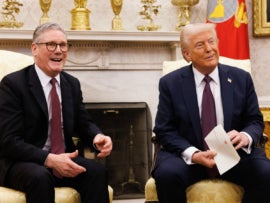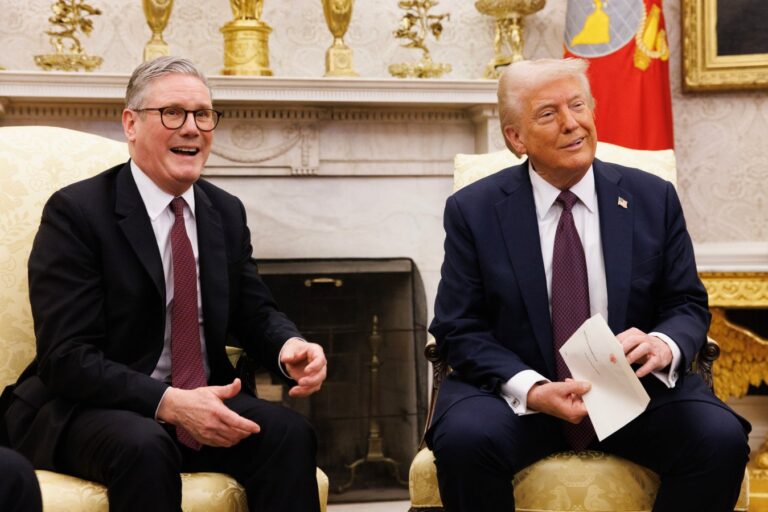
The UK and US have signed a more detailed version of the trade agreement initially drafted last month. UK Prime Minister Keir Starmer and US President Donald Trump announced they had formally signed the deal at the Group of Seven Summit in Alberta, Canada, on Monday.
The so-called US-UK Economic Prosperity Deal reduces import duties on British cars and aerospace materials. But it states that terms covering steel, aluminum, and pharmaceuticals will be determined at a later stage, contingent upon the UK meeting specific supply chain security criteria and aligning with US national interests. These conditions are all connected to broader US concerns about supply chain dependencies on China.
US Commerce Secretary Howard Lutnick will determine “a quota of products” that will be exempt from the existing 25% import tariffs on UK steel and aluminium, reporters were told. The UK government said it aims for “0% tariffs on core steel products as agreed,” according to the BBC.
The initial draft, published in May, included proposed exemptions for steel, aluminium, cars, and jet engines. However, most British exports were still subject to a baseline 10% tariff. The agreement was expected to come into force on July 9, in exchange for the UK removing restrictions on imports of US beef and ethanol.
As the terms were never finalized, uncertainty arose when Trump doubled the import tariff on steel and aluminum to 50% on June 3, citing efforts to bolster the domestic steel and aluminum industries. The UK was swiftly granted an exemption but was warned that it could face the same tariff rate if it were found to have “not complied with relevant aspects” of the agreement.
Trump described the new US-UK Economic Prosperity Deal as “a fair deal for both” and would “produce a lot of jobs, a lot of income,” while Starmer hailed it as a “a very good day for both our countries, a real sign of strength,” according to the Associated Press. It will take effect one week after the US executive order is published in the Federal Register.
Key US import tax reductions and exemptions under the US-UK Economic Prosperity Deal
- 10% tariff on up to 100,000 UK-manufactured cars annually, down from the standard 25%.
- 10% tariff on UK auto parts, down from 25%.
- Tariff exemptions for aerospace products that include aluminum and steel components.
- Preferential terms for steel, aluminium, and pharmaceuticals remain under negotiations.
According to the executive order, the deal will also provide expanded access to UK markets for beef, ethanol, and other agricultural goods. The May draft of the agreement proposed exemptions for 13,000 metric tonnes of US beef and 1.3 billion litres of US ethanol from UK import duties.
UK is the only country to strike a deal with Trump so far
On April 2, Trump announced sweeping “reciprocal” tariffs on all nations with which the US has a trade deficit, aimed at promoting domestic manufacturing. However, just a week later, he suspended them for 90 days to allow time for trade negotiations that would ease the market turmoil.
Progress since then has been slow. Earlier this month, he sent letters to all negotiating partners, reminding them of the July 8 deadline by which the “reciprocal” tariffs will be imposed if no deals are reached, and asked that they submit their best trade deal offers. The administration hinted that several deals were in the works, but few have come to fruition.
Last week, Trump reached a tentative trade agreement with China under which all Chinese imports will face a 55% tariff, while American exports to China will be subject to a reduced 10% tariff, but this is not set in stone. A spokesperson for China’s Ministry of Commerce told reporters that “both sides need to stick to that agreement,” but that “China always honors its commitments,” perhaps hinting at Trump’s tendency to backpedal.
The US has delayed tariffs on the EU, but for how long? Read TechRepublic’s coverage about how Europe is navigating its own high-stakes deadline.

